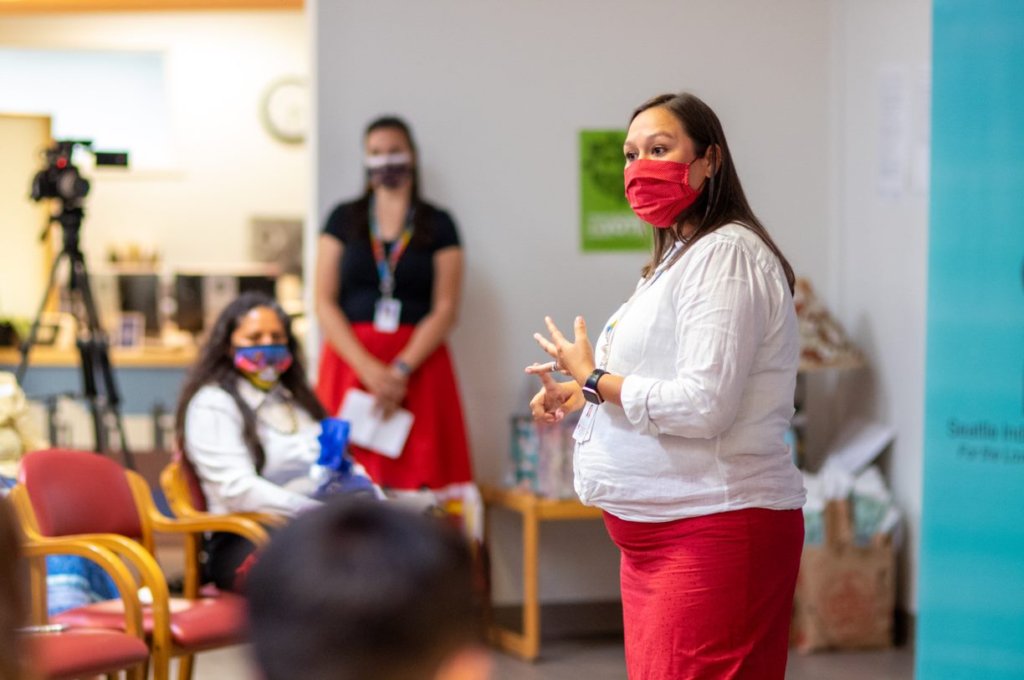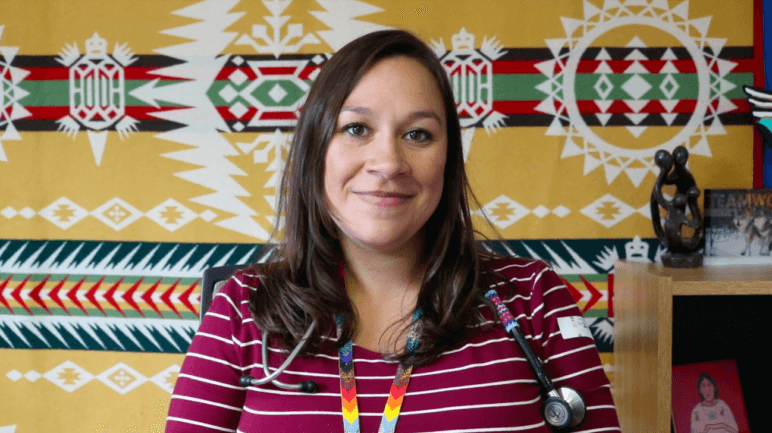Already sizeable and growing, Seattle Indian Health Board’s workforce is filled not only with talent but also an array of lives, journeys and wisdom. Relative to Relative is a conversation series, lowering barriers to connection through unscripted storytelling. Each installment is an invitation to weave new relations and recognize the humans behind our healthcare.
When Dr. Socia Love-Thurman (Cherokee/Delaware/Yuchi) first set foot in Seattle Indian Health Board as a prospective resident, she had no idea she’d still be here eight years later, let alone as the organization’s Chief Health Officer.
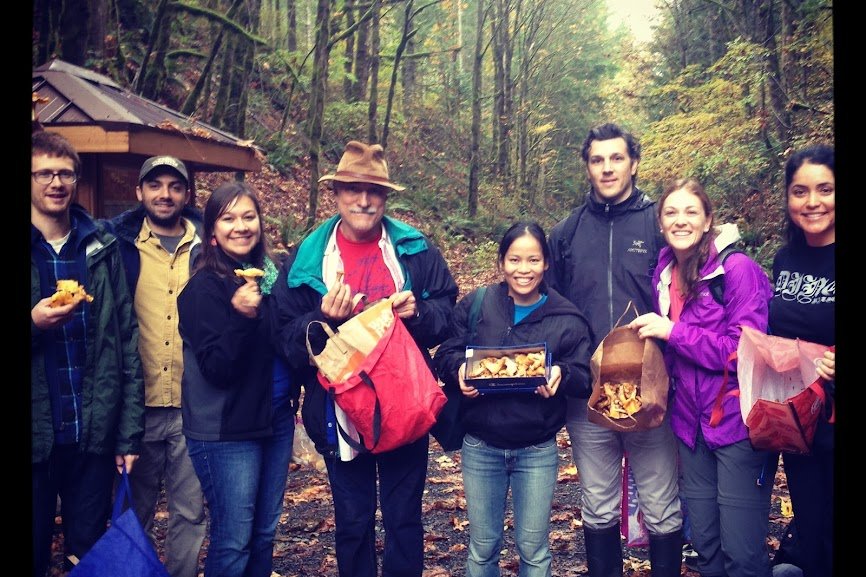
“Coming from Oklahoma, I was a shy, rural Native girl, but I decided to come take a look,” Dr. Love-Thurman remembered. “And I immediately fell in love with this community. I could see the good work that was happening, and I could see my role in that.”
Since then, Socia has gone from completing our Family Medicine Residency Program as a resident physician, to leading the program, to overseeing all of the organization’s medical services as the Chief Health Officer.
“What I love about Seattle Indian Health Board is that there’s room to grow and feel like you can really contribute, and that you can actually make change and progress in your community,” she said. “That’s what keeps me here.”
Socia is also anchored by the presence of her husband, Shawn (Sac & Fox/Cheyenne/Shawnee/Caddo), who works in the clinic as a nurse.
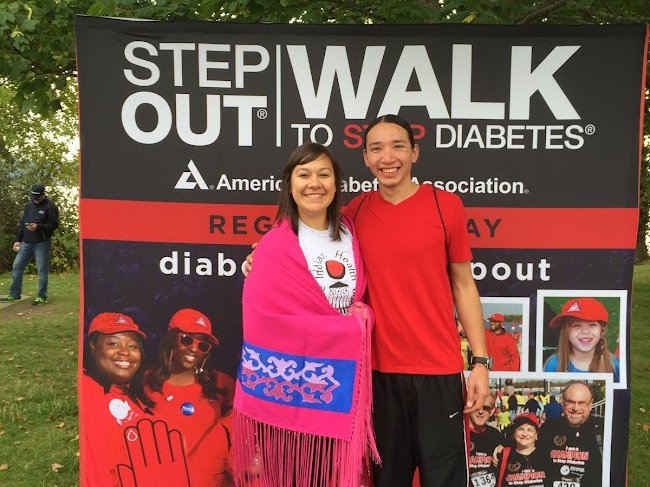
Their children—Xander, Orion, and Caius—can be spotted enjoying the activities at our Saturday Pediatric Clinics and other community events. Though the oldest is only in elementary school, the Love-Thurman kids know their mom takes care of people and that their dad is the one who gives shots, so they’re eager to learn more.
“When I would have to leave in the middle of the night to go to the hospital, they would say, ‘Are you going to deliver a baby?!’ and I would say ‘yes!’ and they would want to hear all about it when I got home,” Socia said. “It’s fun for a six-year-old to hear that their mom runs into the hospital in the middle of the night to deliver babies.”
Helping relatives on their pregnancy journeys is arguably Dr. Love-Thurman’s favorite part of family medicine. Providing attentive, empowering care from the earliest ultrasound to final birthing pushes is powerful in and of itself. But for Socia, the full magic goes beyond that initial trek.
As Socia reflects on her most meaningful experiences here, she thinks of helping a Native woman she knows through not one but two births, first as a young trainee and later as a seasoned doctor. Being able to show up as a Native physician for a Native family during those vulnerable yet connective encounters, over the course of their lives, grounds her in a sense of purpose.
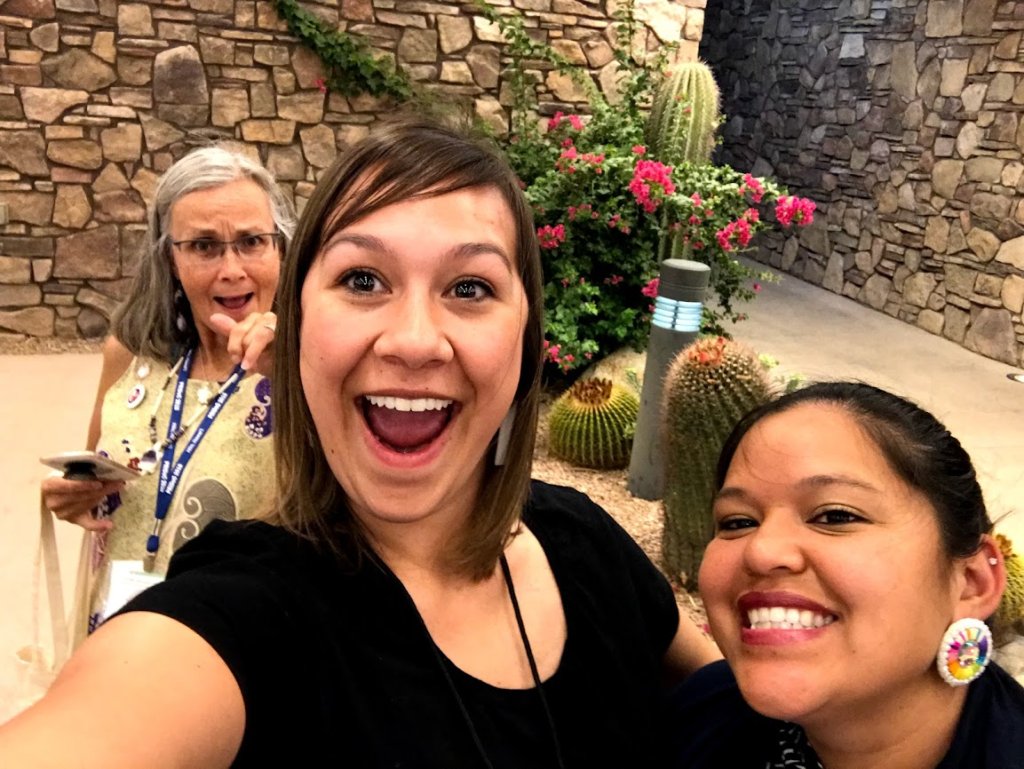
“Those moments are the things that really remind me of why I’m here, because I didn’t grow up myself being able to see a Native physician, and [it’s incredible] to get to be that for someone, to be someone who looks like you and knows you in ways that nobody else could,” she said. Reflecting on the babies she delivered, she expressed, “I’m excited to follow both of these kids as they grow up and be there for mom as she’s navigating motherhood.”
In her role as Chief Medical Officer, Love-Thurman is always looking for ways to further develop the organization’s Indigenous Knowledge Informed Systems of Care. The success of that holistic model of health could be the difference between Band-Aid medicine and reducing systemic health disparities.
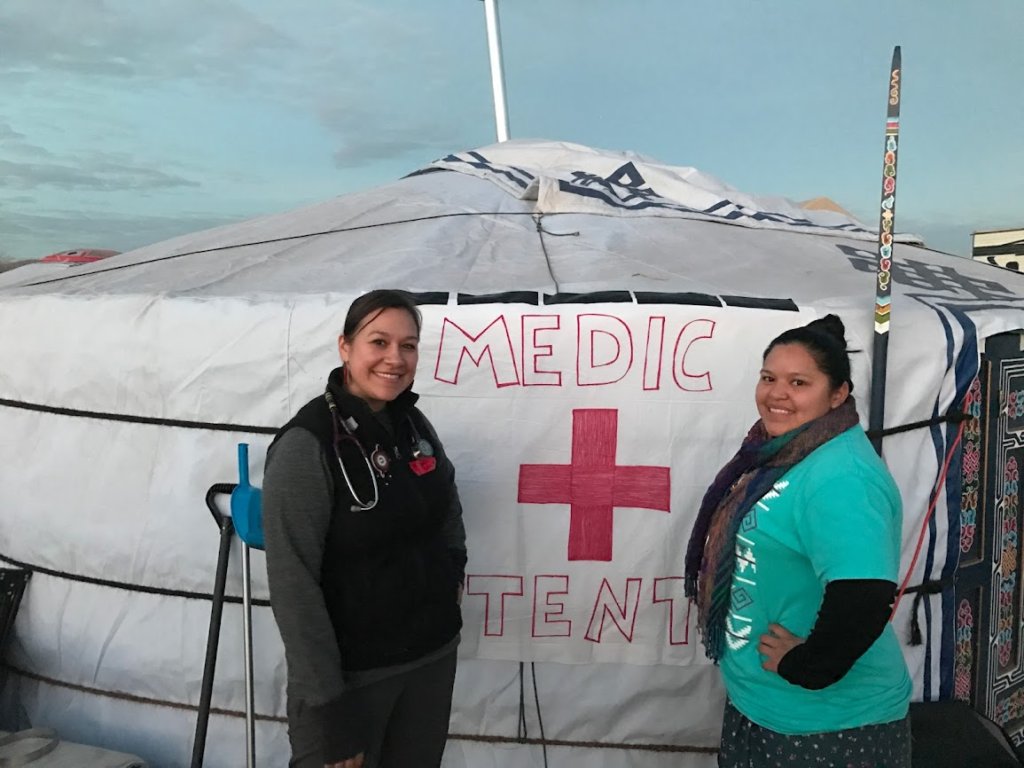
Through her day-to-day practice, she has found that success begins with making sure that everyone who walks through our doors feels like a relative, and they feel listened to.
“When I’m meeting people in my exam room, I am just trying to hear where they are coming from, what are they really needing,” she explained. “Maybe it’s just a blood pressure medicine. But maybe their blood pressure is high because there’s so much stress happening in their life, and they’ve just lost an auntie, and they recently had a family member with COVID-19. Instead of the blood pressure medicine for a quick-fix, maybe it’s that we actually need to focus on their spiritual and emotional well-being to try to bring their blood pressure down.”
Every day, Socia is weaving relations with the strength to endure lifetimes of care.
“It’s really about meeting people, hearing people, and not just assuming that we have a quick fix or an answer for everyone,” she said. “The way I approach people, it’s really by listening and then offering what I can both in that moment, and then building that relationship so that we can go forward and continue to work together and know each other and find that place of healing or balance in their lives.”
